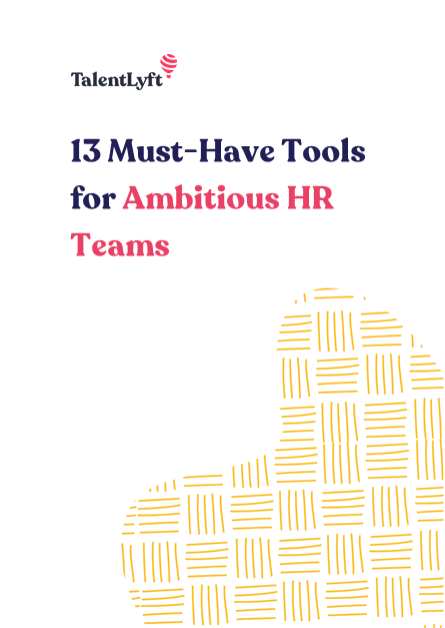
What HR technology will make it big this year? Which HR tech tools ones will become an essential tool for HR professionals in 2020 and what fads should be avoided?
What HR technology will make it big this year? Which HR tech tools ones will become an essential tool for HR professionals in 2020 and what fads should be avoided?
As we enter a new decade, we’re also entering a new era of digital transformation - particularly in human resources technologies.
The market of HR technology continues to grow and will likely top $30 billion in the next five years. Capterra predicts that by the end of the year, 70% of small and medium-sized enterprises will be utilizing HR technologies.
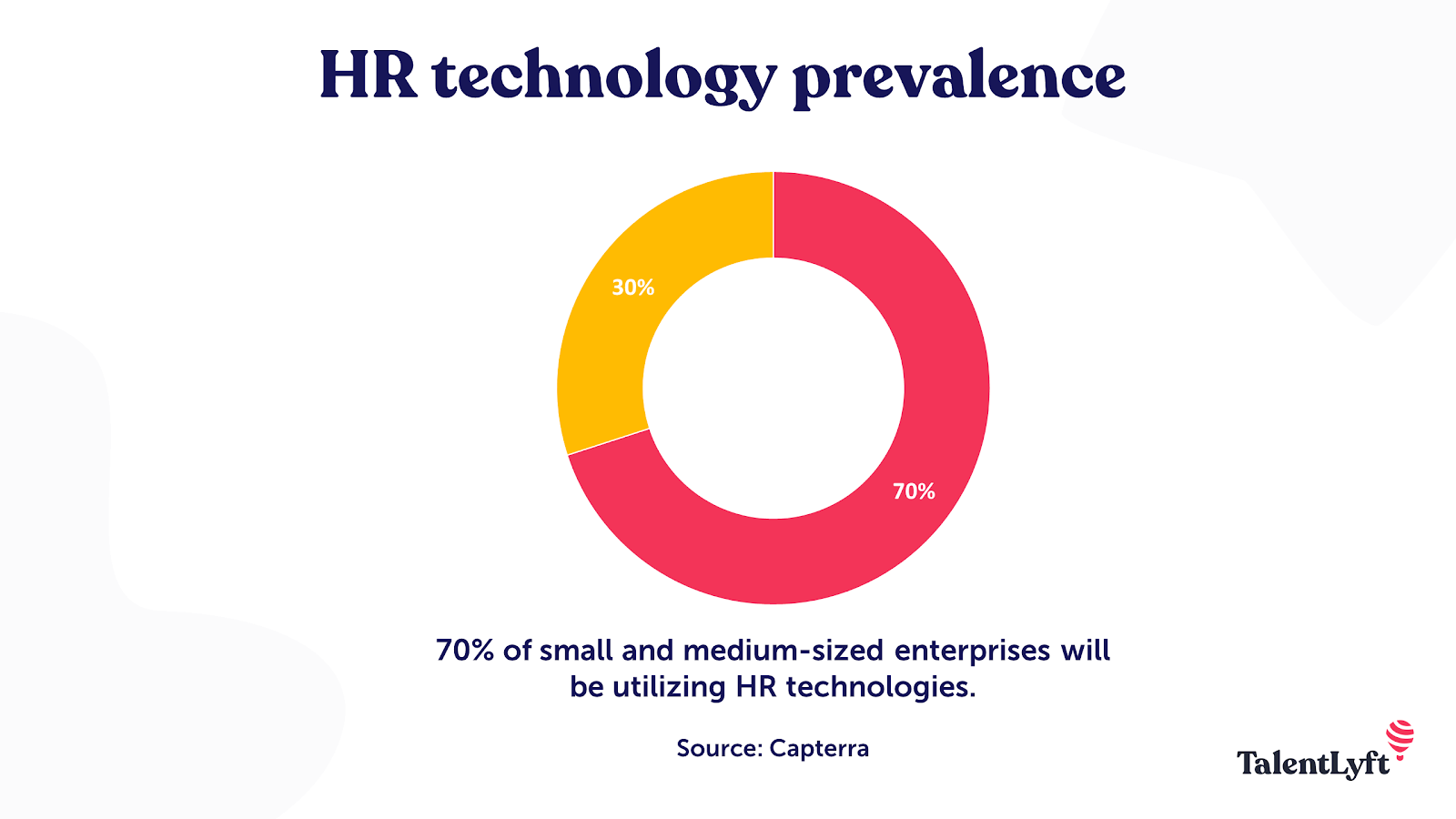
From artificial intelligence to virtual reality training, the way we hire, manage, and work is changing at a rapid pace. Which ones will become an essential tool for HR professionals, and what fads should be avoided? Keep reading to find out!
In this post, we’re going to try to predict what technology will make it big this year. Here are the top 10 technology trends HR leaders should watch in 2020:
The continued growth of AI
Increased use of virtual reality
Expansion of cloud-based HCM tools
Employee self-service
Use of specialized HR tools
The growing need for digital adoption tools
Chatbots
Virtual and remote work technologies
Better integrations
New wellness technologies
The use of Artificial Intelligence is expanding rapidly, and you can expect its application in human resources management to continue to grow in 2020 and beyond. So, where is AI being used in HR tech?
One of the most common uses is in the hiring process. What is the role of AI in recruitment? AI can help identify top candidates for a job opening. Does your software give you a candidate job-match score or help you analyze your recruiting efforts? AI drives that score.
Hilton, IBM, and GE use AI-driven algorithms as a part of their screening process for job applicants. The technology can analyze anything from work samples to social media posts.
In 2016, Unilever started using AI to screen all entry-level employees. Job applications first submit to a video interview, answering a generic set of questions. Their responses are analyzed using AI. Candidates will complete an in-person interview if they move to the next step in the process.
Although AI and recruitment are a perfect match, artificial intelligence isn’t just for hiring. AI will also play a more significant role as more HCM systems expand their data analysis and information discovery tools.
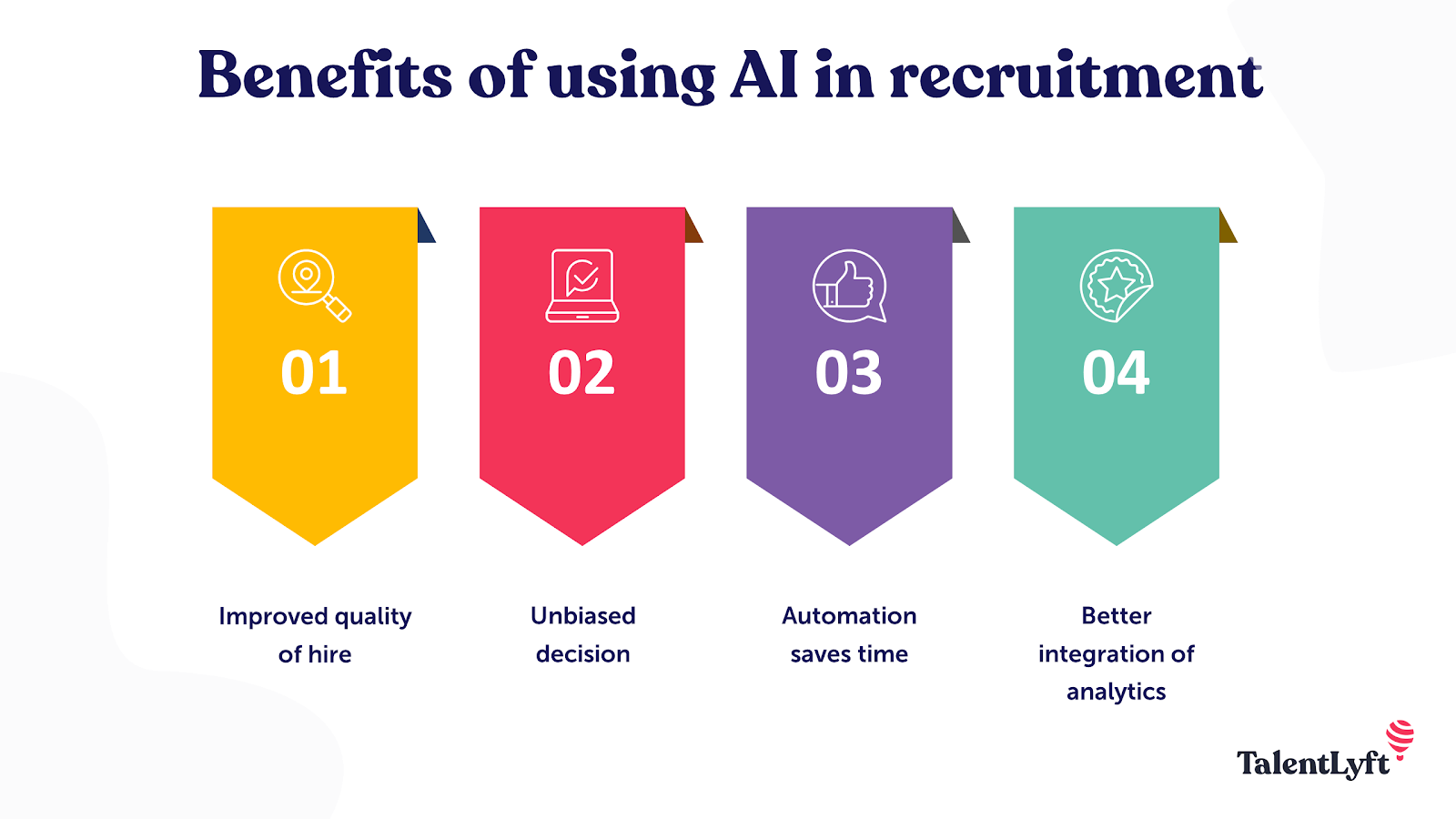
In 2020, you can expect more companies to jump on the virtual reality training wagon. It sounds far fetched and futuristic, but many companies are seeing positive results. Walmart and FedEx started using virtual reality training and plan to expand their programs. The technology has actually been around for quite some time.
Pilots have been training on flight simulators for decades. The difference is the new surge in virtual reality products for consumers, like Oculus. The hardware is cheaper, and content production is easier, making it an excellent option for corporate trainers.
Most companies are using some HCM software, but perhaps not the latest versions. As more companies look to upgrade their IT infrastructure, expect to shift to a newer cloud-based HCM system this year. Between 2018 and 2020, the percentage of HR leaders who said their technology was a cloud-based SaaS model doubled.
Many larger companies were slower to adopt cloud-based technologies out of concern they couldn’t support their complex needs. However, more technology leaders now view cloud technology as stable and mature. Making the switch to a cloud-based system will likely continue to be a top choice and priority for 2020.
Newer cloud-based systems also tend to have more options for employee self-service, decreasing the burden on HR associates for processing routine changes like address, tax withholding, or benefit changes.
Self-service is a popular feature with employees. Nearly three-fourths of full-time workers in the U.S. expect employers to provide high levels of self-service for HR tasks. More technologies will focus on self-service in 2020 because it helps companies save money and offers a better experience for employees.
Some companies are finding their legacy HCM systems are no longer a good fit and are opting to purchase separate systems for various HR functions. A system that excels in letting you process payroll and scheduling PTO might not be the best fit for recruiting top talent.
By focusing on a narrower niche, such as recruiting, newer software providers can innovate at a much faster pace. You can expect more frequent releases and better support for the modern mobile-driven workplace.
➡️ Check out the list of the top 80 HR tools!
With the shift to newer HCM tools and an increased reliance on employee self-service, comes the need to show employees how to use the tools. Self-service tools will fail if employees aren’t adequately onboarded and guided through how to use them.
Digital Adoption Solutions, like Apty, help companies onboard new users to web-based applications faster. On-screen guidance shows users where to go and what to do next. The tools also can be used to walk candidates through completing your application process. Some of the benefits of a digital adoption tool for HR professionals include:
Decreased training costs,
Increased employee engagement and satisfaction and
Faster onboarding.
You can also expect to see more chatbots in HR technologies as the emphasis on self-service increases. Many companies already use chatbots to interact with customers. Why not use them with employees or prospective new hires? Chatbots, when deployed correctly, can help quickly resolve issues and provide answers instead of waiting for a phone call or email.
AI-powered chatbots can solve many simple HR issues without tying up an HR associate. Updating personal information or making other data changes can be automated with the use of chatbots.
As more companies expand their use of remote workers, you can expect to increase your investment in the technologies to make it possible. Utilizing remote workers requires you to change the way you recruit.
Your candidate pool goes from local to global. You’ll also need ways for employees to interact virtually, including video conferencing and other collaboration tools.
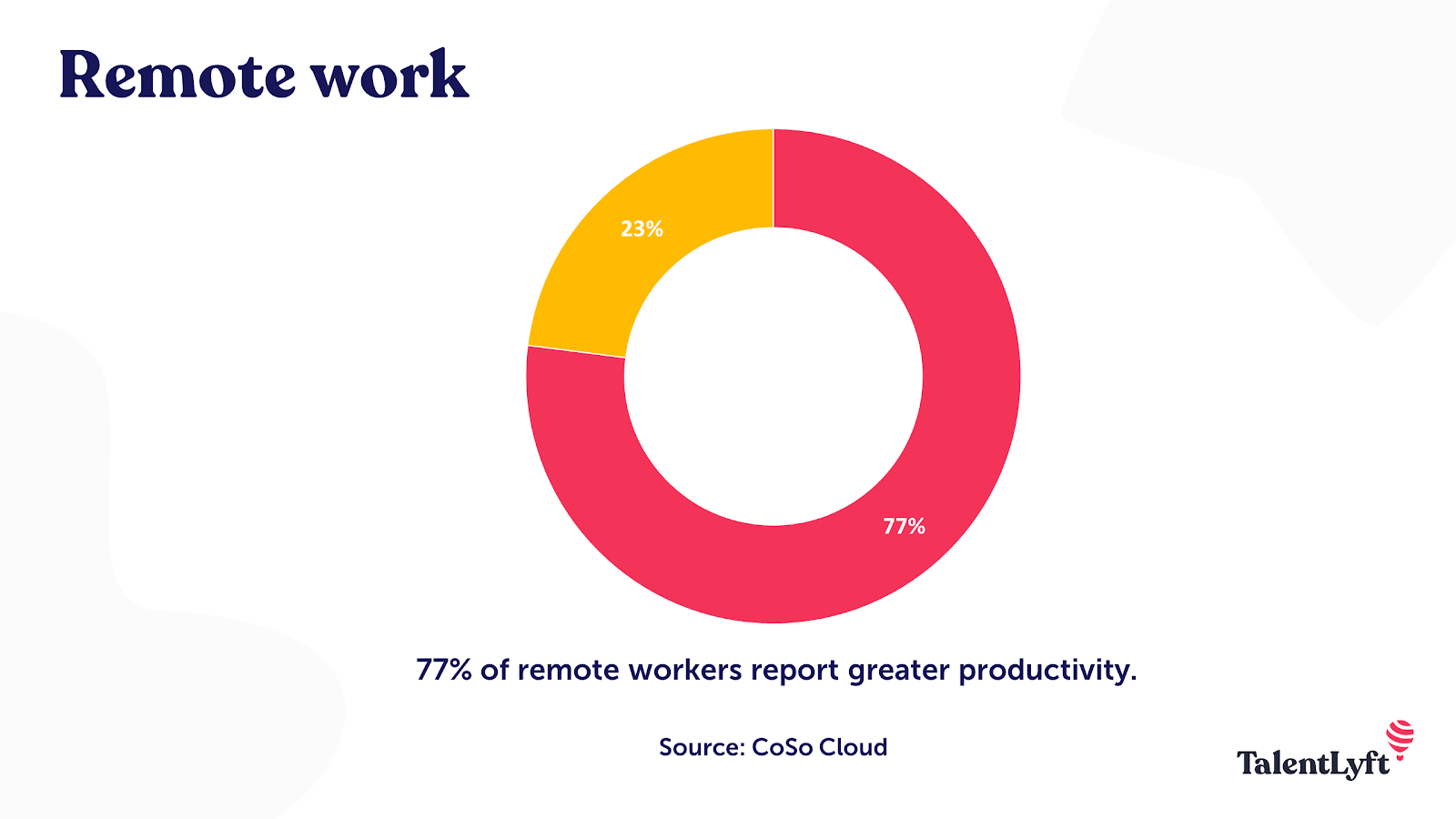
➡️ Check out our guide: The A to Z of Remote Hiring!
One shortcoming of a lot of HR technologies is getting employees to use it. If an employee has to remember a separate login or go to a ridiculously long URL, they won’t use the tool. To solve this challenge, look for more tools that closely integrate with the tools employees use every day.
Employees are more likely to use something if they can access it from their Outlook inbox or in Slack. Through the use of APIs, more tools are opening themselves up to enhanced integrations. When you’re evaluating new technologies, look to see if and how it integrates with your existing tools.
More employees expect companies to offer wellness benefits. Employers and technology companies are paying attention to. Nearly 80% of businesses say employee well-being is a critical part of their business plans.
There are new apps to help with fitness goals and virtual access to therapists and mental health professionals. G2 reports there are more than 30 major corporate wellness tools on the market.
But are they working? Several of the tools are too new to measure their long term impact on employee wellness, but the increased emphasis on wellness does appear to help. According to Aflac, about two-third of employees report making healthier lifestyle choices because of their company’s wellness program.
➡️ Read our guide: Should You Start an Employee Wellness Program?
While the future of HR technology is exciting, the reality in 2021 or 2025 may not be quite as bright if you don’t plan on how to adopt and utilize new technology fully.
According to a recent Deloitte survey, 65% of our HR professionals say their technology is inadequate or only fair at achieving its overall objectives - despite investing nearly $20 billion in the technology over the past five years.
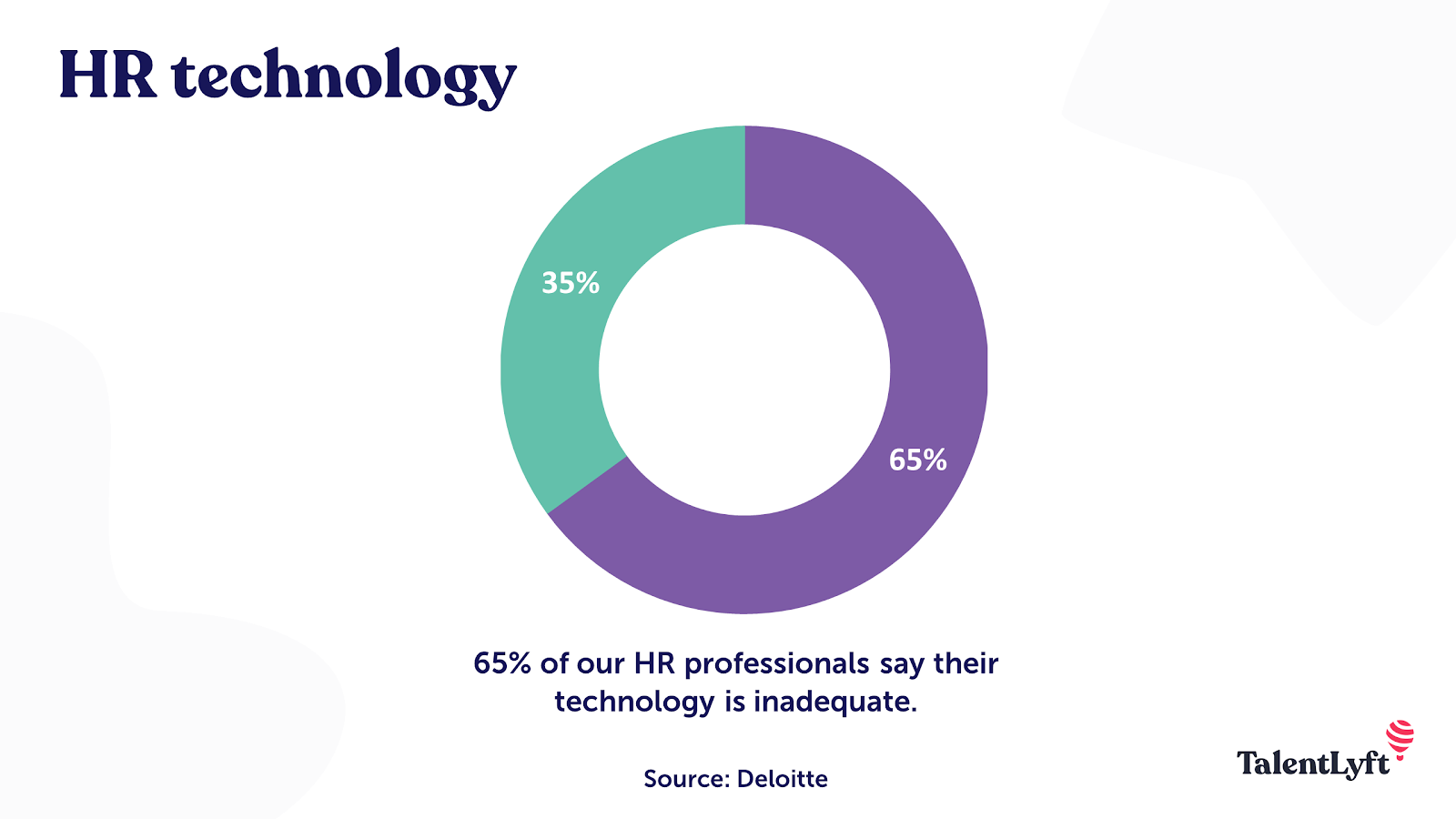
As you start to evaluate some of these trends this year, what can you do to protect your digital investment? Follow these tips for improving your software and technology utilization:
1. Carefully evaluate your vendor:
2. Make a detailed implementation plan:
3. Increase your adoption rates:
Hopefully, these trends and tips can help you better leverage technology to meet the needs of your HR team, employees, and job seekers. One thing is for sure, the need for HR technologies is going to continue to grow.
With careful selection and planning, you can use these new technologies to build modern and productive HR processes and deliver better experiences for applicants and employees.
Nathan Altadonna is a content writer for Apty, a leading digital adoption platform. He writes about digital transformation, employee productivity and enterprise software.


